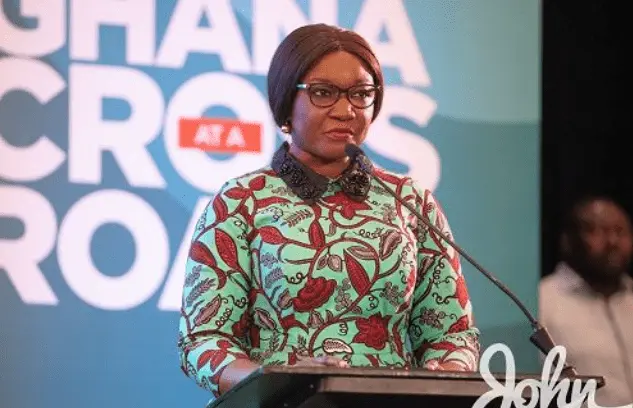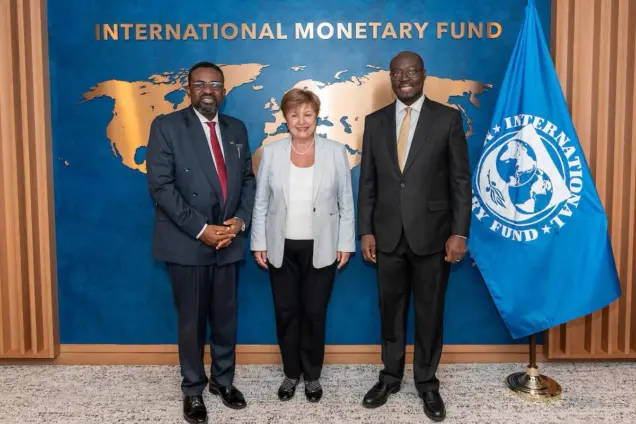The Ghanaian Cedi has seen its share of ups and downs recently, sparking widespread public discussion and concern. Amidst this volatility, Deputy Finance Minister Thomas Nyarko Ampem offers a compelling explanation for the currency’s newfound stability: the strategic operations of the Gold Board. According to Ampem, this initiative has been a “game changer” in Ghana’s ongoing efforts to bolster its economic standing. By restructuring gold exports and leveraging the revived IMF program, the Gold Board has played a pivotal role in stabilizing the Cedi.
“Today, with the introduction of the Gold Board and the way we have channeled all the exports through the Gold Board, we have accumulated and exported over $2.7 billion worth of gold,” Ampem stated, underscoring the initiative’s significance. His remarks highlight the government’s belief that strategic interventions, particularly in the gold sector, are crucial for maintaining Cedi stability.
Ampem’s staunch defense of the Gold Board came in response to criticism leveled by Vice President Bawumia, who had challenged the Mahama administration regarding the Cedi’s appreciation. Ampem dismissed Bawumia’s claims, suggesting a disconnect from the realities of effective economic interventions. He specifically pointed to the Gold Board as evidence of tangible action, contrasting it with what he portrayed as mere rhetoric. The core of Ampem’s argument rests on the claim that the Gold Board has fundamentally reshaped Ghana’s gold export regime, leading to significant gains in foreign exchange reserves and bolstering the Cedi’s value.
Prior to the Gold Board’s full operationalization, Ghana’s gold export figures were markedly lower. From January to April 2024, gold exports totaled approximately $860 million. However, in the same period in 2025, following the Gold Board’s intervention, exports surged to over $2.7 billion. This dramatic increase, according to Ampem, is directly attributable to the centralized and formalized export process facilitated by the Gold Board. This restructuring has not only increased the volume of gold exports but has also ensured that the proceeds are managed more effectively, contributing significantly to Cedi stability.
Beyond the Gold Board’s direct impact, the revival of Ghana’s IMF program has played a crucial role in restoring investor confidence and reducing fiscal pressure on the Cedi. The renegotiated program has signaled to international markets that Ghana is committed to fiscal discipline and structural reforms, thereby attracting foreign investment and stabilizing the currency. This renewed trust has been instrumental in creating a more favorable economic environment.
Furthermore, Ampem emphasized the current administration’s efforts to reduce borrowing, which has had a positive impact on treasury bill rates. “Since we took over, we’ve also significantly reduced borrowing. As a result, treasury bill rates have been on a steady decline since February this year. These are signals of a recovering economy, not empty promises,” he stated. The reduction in borrowing has eased pressure on the Cedi and signaled to investors that Ghana is managing its debt more responsibly.
While Ampem’s explanation provides a strong narrative for the Cedi’s stability, it’s important to consider alternative perspectives and potential counterarguments. Some critics argue that external factors, such as fluctuations in global commodity prices or changes in investor sentiment, may also contribute to the Cedi’s performance. Additionally, the long-term sustainability and broader economic impact of the Gold Board initiative remain subjects of ongoing debate. Understanding these different viewpoints is crucial for a comprehensive assessment of Ghana’s economic recovery efforts.
In summary, Deputy Finance Minister Thomas Nyarko Ampem attributes the recent stability of the Ghanaian Cedi to the strategic operations of the Gold Board, emphasizing the importance of restructured gold exports and the revived IMF program. These policies, according to Ampem, have been instrumental in stabilizing the Cedi and signaling a broader economic recovery. As Ghana continues its efforts to strengthen its economy, the impact of these policies on Cedi stability will be closely watched.
Image Source: MYJOYONLINE





















